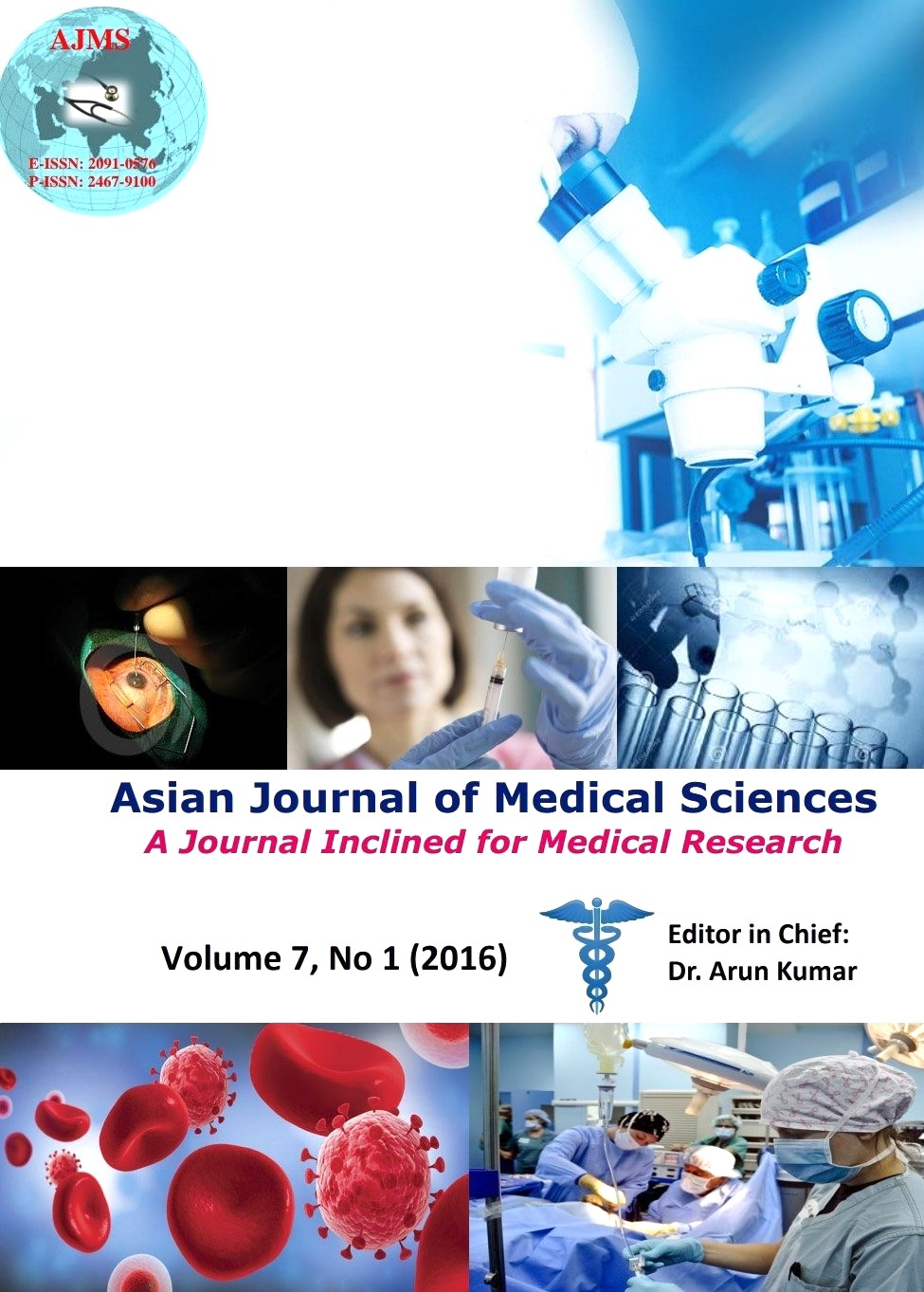A study on assessment of HbA1c level as a diagnostic criterion of type 2 diabetes mellitus
Keywords:
Cut-off value, Diabetes Mellitus, HbA1cAbstract
Aims and Objectives: We compared performance of HbA1c in diagnosis of type 2 diabetes mellitus with that of fasting plasma glucose and tried to determine cut off point of HbA1c for optimum sensitivity and specificity in a population of eastern India both from urban and rural background.
Materials and Methods: The analysis was conducted in persons aged between 40 and 80 years, visiting our institution, who are newly diagnosed as diabetic and non-diabetic attending hospital for some other reason, who underwent FPG and HbA1c testing, in the time period January 2013 to August 2014.
Results: From 100 individuals (mean age 54.6 years) HbA1c ? 6.5% produced sensitivity of 90% and specificity of 72%, positive predictive value 76.27% and negative predictive value 87.80% when compared to FPG ? 126 mg% as standard. By ROC curve, optimum cut off point for HbA1c was found to be 7.05% for diagnosis of diabetes.
Conclusion: Using a cut off value of HbA1c of 7% may optimise detection of diabetes mellitus and ensure proper patient care.
Asian Journal of Medical Sciences Vol.7(1) 2015 49-52
Downloads
Downloads
Additional Files
Published
How to Cite
Issue
Section
License
Authors who publish with this journal agree to the following terms:
- The journal holds copyright and publishes the work under a Creative Commons CC-BY-NC license that permits use, distribution and reprduction in any medium, provided the original work is properly cited and is not used for commercial purposes. The journal should be recognised as the original publisher of this work.
- Authors are able to enter into separate, additional contractual arrangements for the non-exclusive distribution of the journal's published version of the work (e.g., post it to an institutional repository or publish it in a book), with an acknowledgement of its initial publication in this journal.
- Authors are permitted and encouraged to post their work online (e.g., in institutional repositories or on their website) prior to and during the submission process, as it can lead to productive exchanges, as well as earlier and greater citation of published work (See The Effect of Open Access).




